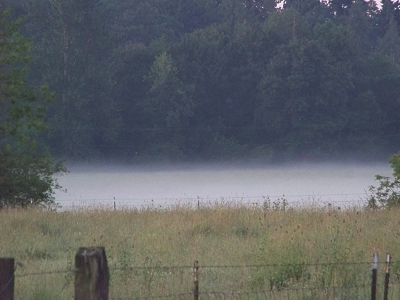Which do you see as the greater threat to Jesus Christ’s Church: Islam or secularism?
Which do you fear more?
Evangelicals, according to survey research conducted by the Pew Research Center’s Forum on Religion and Public Life, view secularism as a greater threat to Christianity than Islam. It seems, on the surface, like a great question for the cultural curmudgeon, at least from this relatively uncultured curmudgeon’s point of view. Will Christianity rot from the inside, or instead be overrun by the heathen hordes?
[…]
Or maybe what respondents meant, the 71 percent of them who chose “secularism” as the major threat to Christianity, is that what they fear most is a falling away, a slow boiling of the frog. Maybe it’s the gradual relaxation of standards that frightens them, the willingness of more and more self-professed Christians to pick and choose which doctrines they believe, if they care to countenance doctrines at all.
Wouldn’t it be something if the reason for this creeping secularism, if it exists, is the very notion of secularism itself?
[…]
In other words, maybe the greatest threat to Christianity is not that people abandon it for other things, but rather our own tendency—or mine, at least—to imagine that it has a limited domain, that there are the things of Christ and then there is all the rest of it. It’s not that a man goes to pornographic sites, it’s that he forgets every woman he sees is crafted in the image and likeness of God. It’s not that a woman goes cold in the marriage bed, it’s that she believes a Christian union is only a spiritual one. It’s not that our children go to where Christ is not, it’s that they imagine there is such a place.
How often I have imagined myself going to a “Christless corner,” some place in real life where God isn’t.
Such foolishness to attempt so impossible a task!
Let’s banish from our heads and from our living the dangerous notion that life has separate Christian and secular dimensions.
May God’s people be revived to such a degree that every dimension of our experience and environment becomes a living reality of acknowledging God in all our ways.
Well, please read Tony Woodlief’s full article over at World magazine: Christless corners.
